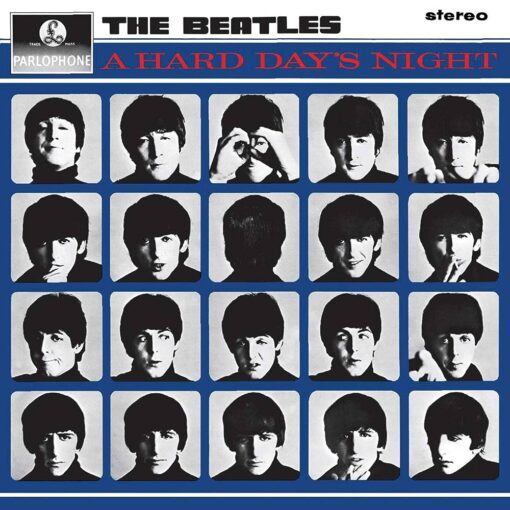- Published on 1969
- Author: Lennon/McCartney
- Track 3 on “Abbey Road“
JOHN 1969: “He (Paul) did quite alot of work on it. I was ill after the (automobile) accident while they did most of the track, and I believe he really ground George and Ringo into the ground recording it. We spent more money on that song than any of them on the whole album, I think.”
GEORGE 1969: “The song ‘Maxwell’s Silver Hammer’ is one of Paul’s which we’ve been trying to record for ages. It’s one of those instant whistle-along tunes which some people hate, and other people really like. It’s a fun song, but it’s kinda sick because Maxwell keeps on killing everyone.”
PAUL circa-1994: “‘Maxwell’s Silver Hammer’ is my analogy for when something goes wrong out of the blue, as it so often does, as I was beginning to find out at that time in my life. I wanted something symbolic of that, so to me it was some fictitious character called Maxwell with a silver hammer. I don’t know why it was silver, it just sounded better than Maxwell’s hammer. It was needed for scanning. We still use that expression now when something unexpected happens.”
About “Maxwell’s Silver Hammer”
“Maxwell’s Silver Hammer” was written by Paul McCartney and originally released on 1969 album Abbey Road. The song features a catchy melody combined with darkly comedic lyrics, which tell the story of a character named Maxwell who goes on a killing spree with a silver hammer.
The track is known for its upbeat and whimsical musical arrangement, which contrasts sharply with the dark subject matter. It features prominent use of a tack piano (a piano modified with tacks on the hammers to create a honky-tonk sound), which contributes to its distinctive sound.
“Maxwell’s Silver Hammer” was not released as a single, but it remains a notable and distinctive track in The Beatles’ catalog. Some listeners have interpreted the song as a metaphor for the unpredictable and sometimes violent nature of life, while others see it as a playful, macabre narrative.
Despite its divisive nature among fans and critics, “Maxwell’s Silver Hammer” remains a noteworthy piece of The Beatles’ discography and showcases the band’s willingness to experiment with different musical styles and lyrical themes.
Meaning of “Maxwell’s Silver Hammer”
The meaning of the song has been the subject of much speculation and interpretation.
On the surface, the song tells the story of a character named Maxwell Edison who goes on a killing spree with a silver hammer. The lyrics are dark and somewhat macabre, but they are set to an upbeat and catchy melody, creating a striking contrast.
One interpretation is that the song serves as a metaphor for the unexpected and sometimes destructive elements of life. The cheerful music juxtaposed with the grim subject matter can be seen as a reflection of how life can throw unexpected challenges and tragedies at us, often when we least expect them.
Another interpretation is that the song may be a commentary on the dark aspects of human nature. Maxwell’s actions could represent the potential for violence or harm that exists within individuals, even those who may seem outwardly pleasant or ordinary.
Additionally, some have suggested that the song may be a reflection on the complexities of relationships and the potential for hidden, darker sides to people. This interpretation sees Maxwell as a metaphor for someone who may seem charming on the surface but harbors darker intentions.
Ultimately, the meaning of “Maxwell’s Silver Hammer” is open to interpretation, and different listeners may derive different meanings from the song. Paul McCartney himself has not provided a definitive explanation, preferring to leave the interpretation up to the audience.
Personnel
The Beatles
- Paul McCartney – lead and harmony vocals, piano, acoustic guitar, Moog synthesizer
- George Harrison – harmony vocal, bass, electric guitars
- Ringo Starr – harmony vocal, drums, anvil
Additional musician
- George Martin – Hammond organ


